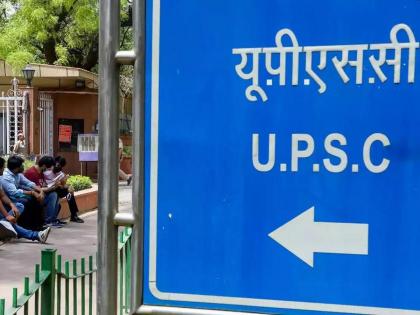‘Cancel Lateral Entry Advertisement’: Union Minister Jitendra Singh Writes to UPSC Head
By Lokmat English Desk | Updated: August 20, 2024 13:47 IST2024-08-20T13:47:20+5:302024-08-20T13:47:47+5:30
Union Minister Jitendra Singh has urged the Union Public Service Commission (UPSC) to retract its advertisement for lateral entry. ...

‘Cancel Lateral Entry Advertisement’: Union Minister Jitendra Singh Writes to UPSC Head
Union Minister Jitendra Singh has urged the Union Public Service Commission (UPSC) to retract its advertisement for lateral entry. In a letter addressed to the UPSC head, Singh said that, following Prime Minister Narendra Modi's directives, the move for lateral entry must adhere to the principles of equity and social justice as outlined in the Constitution, especially regarding reservation provisions.
Department of Personnel and Training Minister writes to Chairman UPSC on cancelling the Lateral Entry advertisement as per directions of Prime Minister Narendra Modi. pic.twitter.com/1lfYTT7dwW
— ANI (@ANI) August 20, 2024
The UPSC recently announced a recruitment drive for "talented and motivated Indian nationals" for lateral entry into senior Union government positions. The advertisement calls for candidates to fill 45 posts, including Joint Secretary, Director, and Deputy Secretary, across 24 ministries.
In his letter he said, "I am writing to you on the important issue of lateral entry into the Government of India. Recently, the UPSC issued an advertisement related to a number of lateral entry posts at various levels in the Central Government. It is well known that, as a principle, lateral entry was endorsed by the Second Administrative Reforms Commission which was constituted in 2005, chaired by Shri Veerappa Moily. The recommendations of the sixth pay commission in 2013 were also in the same direction.
Despite the recent recruitment drive, there have been numerous high-profile cases of lateral entrants both before and after this announcement. Previous administrations have appointed lateral entrants to crucial roles such as Secretary in various ministries and leadership positions at UIDAI, often bypassing reservation processes. Additionally, the National Advisory Council, known for its influential members, was criticized for operating a super-bureaucracy that wielded significant control over the Prime Minister's Office.
Open in app